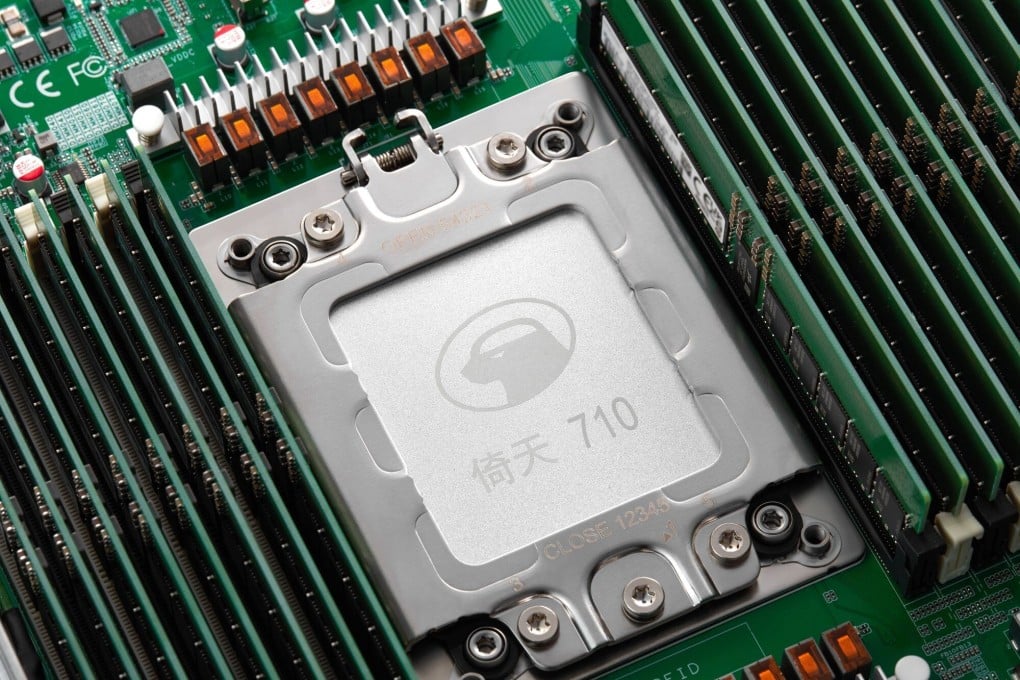Advertisement
Alibaba launches own chip for its servers, cloud computing platform in ‘new breakthrough’ for e-commerce giant
- The e-commerce giant’s semiconductor unit, T-Head, designed the new Yitian 710 chip for the company’s own Panjiu servers
- The general-purpose central processing unit will help drive Alibaba’s cloud computing operations
Reading Time:3 minutes
Why you can trust SCMP
6

Chinese e-commerce giant Alibaba Group Holding has unveiled its own general-purpose central processing unit (CPU), the Yitian 710, for its Panjiu servers that will drive the company’s vast cloud computing operation, a development that intensifies the country’s self-reliance efforts in semiconductors and roll-out of digital infrastructure nationwide.
The new CPU was internally designed by Alibaba’s T-Head semiconductor unit, based on architecture from British chip design company Arm, according to a statement released during Tuesday’s kick-off of Alibaba’s annual Apsara developer conference, which concludes online on Friday.
“Customising our own server chips is consistent with our ongoing efforts toward boosting our computing capabilities,” said Jeff Zhang, president of Alibaba Cloud Intelligence and head of Alibaba DAMO Academy.
He said the Yitian 710 chip will not be sold commercially. Alibaba owns the South China Morning Post.

Using 5-nanometre process technology, which the semiconductor industry refers to as a new and improved generation of chip fabrication after the 7-nm process, the Yitian 710 is the first server chip to be based on the Armv9 architecture, according to Stewart Randall, head of electronics and embedded software at consultancy Intralink.
Advertisement